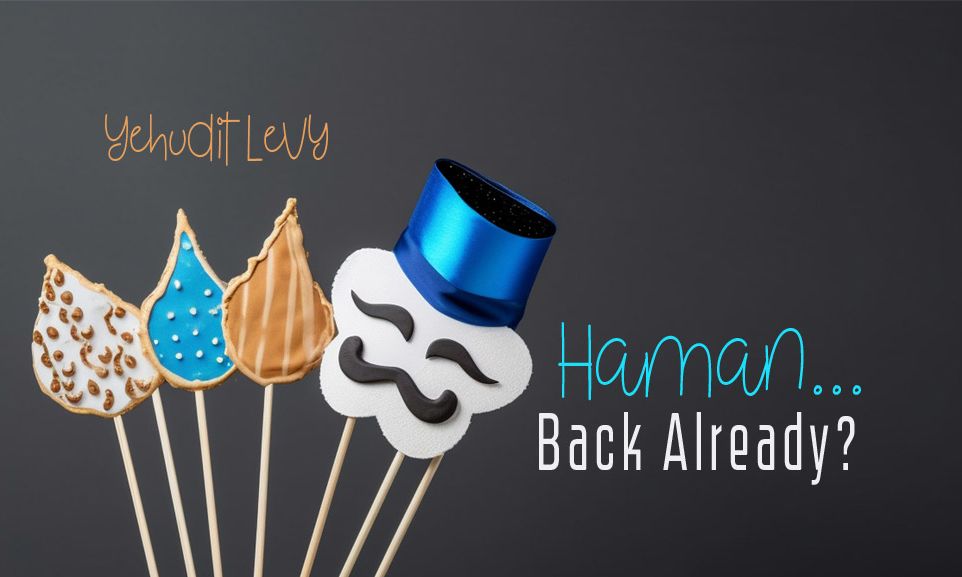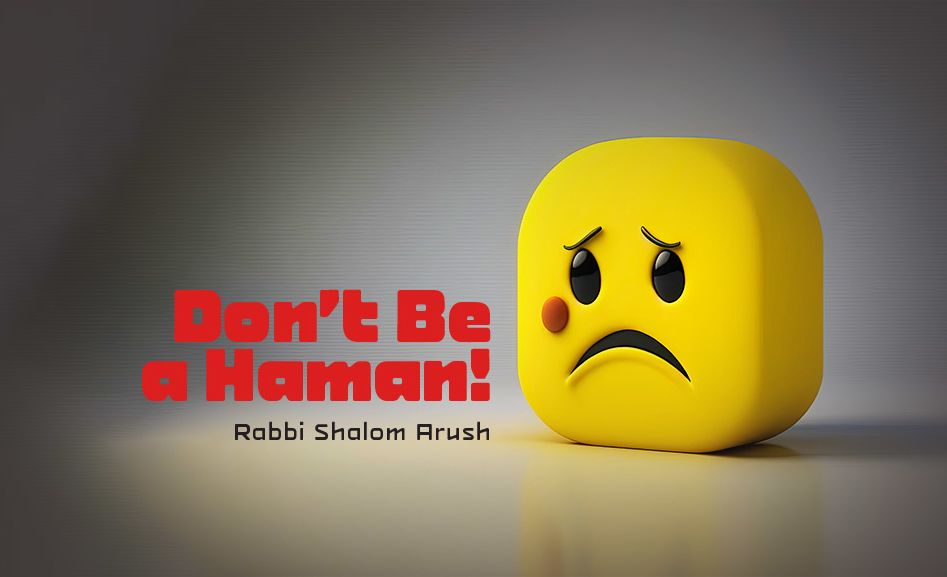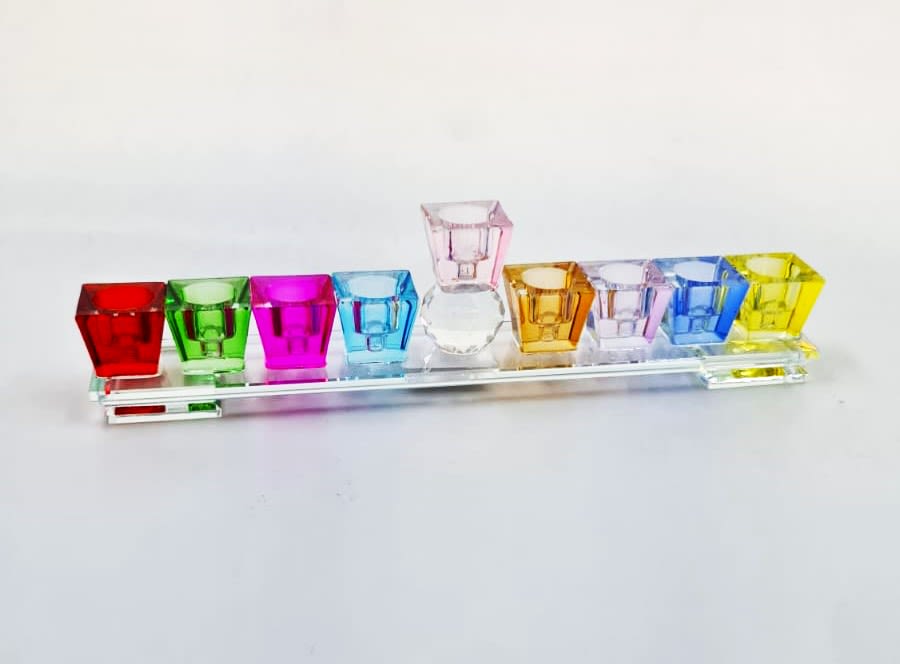
Haman… Back Already?
Our inner Haman gets more sophisticated as we become more spiritually aware, and traps us with far more subtle forms of ingratitude and narrow-mindedness...

Haman, what are you doing here? Back already?
It happened again. This morning, after a relatively peaceful start, the last twenty minutes before the children left was a steady deterioration of shouting (theirs and mine), pleading (mine), stubbornness (all round), bribery (me, again), bad feelings (rampant), and despair (all mine).
And then there was quiet. But my day was already ruined. I sat down wearily on the couch with a heavy heart and tearfully asked Hashem why I couldn’t seem to break this pattern. When things were going my way, I was ready to attribute it all to Hashem: but when there was the slightest change in plan, a defiant child, a petty argument, a sibling crisis: somehow I was not managing to draw on my “emuna” at all. I guess I don’t have emuna after all, I gloomily concluded.
In fact, I have often thanked Hashem for giving me very little suffering in my life: perhaps about one hour in total, daily: the morning rush, and the bedtime rush. Sound familiar? But somehow my “failures” in these areas are managing to drag me down. Intellectually, I understand that this is from Hashem, is good for me and serves a specific purpose: all of which I can’t fathom. However, my heart isn’t quite following and hence the repetitive pattern which is threatening the soul of my family life.
Today, Hashem gave me the answer. I didn’t like it one bit. And it’s absolutely true.
I am starting to sound like Haman.
With Purim on the way, we may expect to go through trials to expel the Haman within all of us. What does this mean, practically speaking?
Haman, the richest and most powerful man in the world of his time, stated emphatically that it was all worth nothing to him if Mordechai would not bow down to him. I am mirroring this attitude on a daily basis. Instead of focusing on the time during the morning/evening that is peaceful and pleasant, I let the last 20 minutes determine the mood of my day. Instead of focusing on the good traits in my children and myself, I hone in on those that cause suffering and highlight them to all and sundry in a blaze of “justified” maternal frustration. Oy. Vey!
How many of us do this regularly without realizing it? How often have we proclaimed a bad “day” at work, when in fact it was one argument with a co-worker that took a few minutes? Or a traffic jam that took only an hour of our entire day, yet tainted it with frustration? Or the one shortcoming of our spouse that threatens marital peace? Or the one problem in our life that takes over our daily consciousness, although it is only a tiny fraction of who we are?
This is the Haman in all of us. The part of us, that, although our lives are largely pleasant, non-eventful and even successful, insists on focusing on the one or two things that are not going “our way”. We say to ourselves repeatedly without realizing, that nothing else is worth anything if ……….. (fill in the blank with appropriate form of suffering) happens. The morning is ruined if the kids aren’t perfect. The day is ruined because of the heat. The house is a “wreck” because the garden hasn’t been done for 2 months. The list goes on.
And don’t think that the religiously observant and those with sterling emuna are immune. Our inner Haman gets more sophisticated as we become more spiritually aware, and traps us with far more subtle forms of ingratitude and narrow-mindedness, even in the name of doing a mitzvah: tasteless Shabbat meals, lost Torah learning, missed chesed opportunities, a bad “hair-cover” day; any of these so-called righteous reasons to be upset are only the ploy of the Haman in all of us to trip us up and encourage us to forget all the good we have due to some “major” blunder/inconvenience/event that we have experienced.
A miracle is typically defined by the frequency of occurrence. So the Splitting of the Red Sea is defined as a miracle, whereas birth goes largely unrecognized by humanity as being a miracle, although it clearly is one.
Suffering works much along the same principle as miracles: by frequency of occurrence. We actually suffer so little, in relation to the scope of the rest of our lives, which we can’t help but focus on it, because it is such an anomaly. On the other hand, someone who lives with continual, endless suffering, will focus on any little good thing that happens, since it is infrequent.
Therefore, if we live such wonderful lives that we notice when something goes wrong, this is surely something to be grateful for! And this realization will surely help us laugh in the face of our internal Haman with glee.
So Hashem was telling me to grab my inner Haman by the ears, so to speak.
I’m going to enjoy eating Hamantaschen this year, that’s for sure.










Tell us what you think!
Thank you for your comment!
It will be published after approval by the Editor.